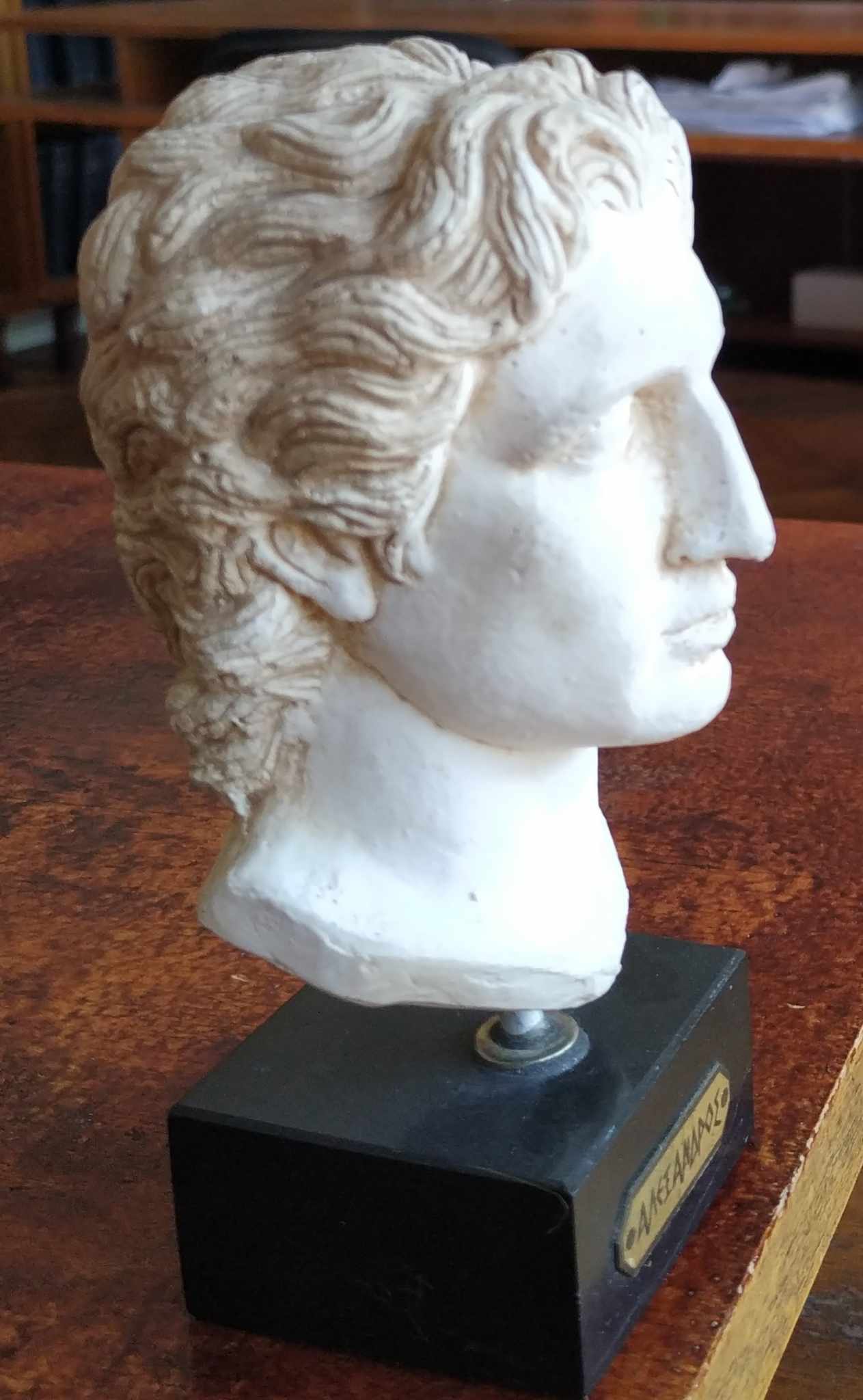Alexander the Great

Alexander III of Macedon, most commonly known as Alexander the Great (b. July 21, 356 BC, Pella – d. June 13, 323 BC, Babylon) was the king of Macedonia (336–323 BC). One of the greatest military leaders of the ancient world. He was the son of Olympias, the daughter of the king of Epirus, and Philip II, the king of Macedonia. Alexander was a student of Aristotle from the age of 13.
In 334–326, he conquered Asia Minor, Syria, Phoenicia, Palestine, Egypt-Libya, Mesopotamia, Persia, Central Asia, India and created the first largest Eurasian state, laid the foundation for a new world civilization — Hellenism.
The richest legacy has been accumulated in science, figurative language and art about Alexander the Great; stories, legends, fairy tales, novels were written about him in parallel to scientific research. In world historiography, various historians connected the past of their countries with the name of Alexander the Great. Such trends can be observed in Georgian historiography as well. According to the unknown author of the 9th-century monument — Conversion of Kartli, Alexander the Great came to Arian Kartli (which was located not in the Mtkvari valley, but somewhere far to the south). From there, he went north, towards the Mtkvari valley, and he brought along Azo, the son of the king of Georgians there. Alexander the Great conquered cities with fortresses (Sarkine, Kaspi, Urbnisi, Odzrkhe), made Azo the king of “old Mtskheta” and then made his way to the south; After that, Azo brought many households from his homeland, Arian Kartli, to Mtskheta, and that's how the foundation for “New Kartli” was laid. Leonti Mroveli, the 11th century historian, wrote in his work — Life of Georgian Kings, that Alexander the Great came to Kartli from the north, by crossing the Caucasus; He attacked the fortified cities of Georgia, but could not achieve anything and turned back. And after he “conquered every country”, he came again, conquered Mtskheta and killed Samar, the head of the city. He also captured other fortresses, cut off all the wild tribes, and appointed a Macedonian, Azon, the son of Aredos, as the king of Georgians. He left Azon 100,000 soldiers from the “Roman country”. Alexander the Great ordered Azo to worship seven celestial bodies. Later, these versions were mostly recounted by Vakhushti Batonishvili, Teimuraz Batonishvili and Marie Brosset.
The assumption of Alexander the Great battling in the South Caucasus, particularly in Georgia, is not confirmed by historical sources. The spreading of the false information resulted from the fact that the Indian Caucasus — the ancient Paropamisus, i.e., the later Hindu Kush mountains, was equated with the Pontic Caucasus, because there is a peak on the Paropamisus — Croukas, which phonetically comes close to “Caucasus”. Alexander the Great actually passed through the Croukas of India, which was mistaken for the Pontic Caucasus in some sources of that time. This is how the story of his invasion of the Caucasus and its “main country” – Iberia – appeared in the writings of Gaius Plinius Secundus (1st century), Quintus Curtius Rufus (1st century) and Gaius Julius Solinus (3rd century). But the ancient authors immediately began to correct this error. Polybius (2nd century BC), Strabo (1st century) and Arrian (2nd century) convincingly wrote about the confusion of the “two Caucasuses” and about Alexander the Great not coming to the real Caucasus. However, Arrian informs us in The Anabasis of Alexander that evidently Alexander the Great had the intention of battling in the Caucasus and conquering the important trade route passing through it.
The views of the historian of David IV on Alexander the Great are especially noteworthy. He thoroughly presents the deeds of the great ruler, his rise and how he finally became the ruler of the world, but he did not mention anything about the presence or absence of Alexander the Great in Georgia. Perhaps the historian of David IV did not know such a source, or if he did, they weren’t trustworthy enough for him to discuss them. The most important thing for him was to compare Alexander the Great and David IV. In this comparison, the historian assures us that David IV was “much mightier” than Alexander the Great in terms of talent, work, determination, strength and courage.
Source: ქართლის ცხოვრება, ს. ყაუხჩიშვილის გამოც., ტ. -2, თბ., 1955 – 59.
Literature: ალექსიშვილი მ., ალექსანდრე მაკედონელი, თბ., 1950; გოზალიშვილი გ., პროგრესული ელემენტი ალექსანდრე მაკედონელის ლაშქრობაში, «ა. ს. პუშკინის სახ. თბილ. სახელმწ. პედ. ინ-ტის შრომები», 1950 ტ. 8; სანიკიძე ლ., ალექსანდრე მაკედონელი, თბ., 1984.
L. Sanikidze


